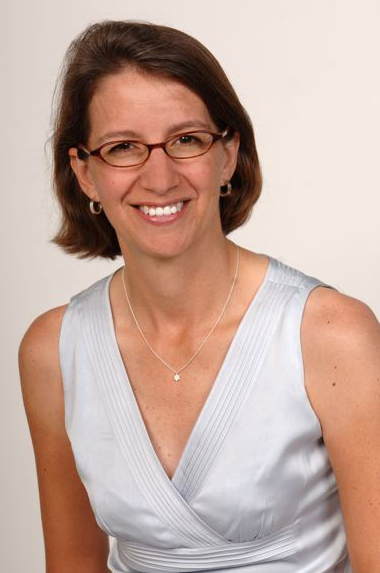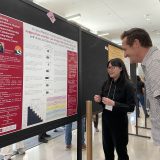Rice 360° Director Rebecca Richards-Kortum to Deliver Schmid College Commencement Address Rice 360° is a research and education institute that promotes the design and dissemination of appropriate health technologies with the goal of improving health and reducing poverty.
May 12, 2016

Schmid College 2016 Commencement keynote speaker, Dr. Rebecca Richards-Kortum of Rice University.
We are very pleased to announce Rebecca Richards-Kortum, Ph.D.,director of Rice 360°:Institute for Global Health Technologies and esteemed professor at Rice University, will deliver the keynote address for this year’s Schmid College of Science and Technology Commencement ceremony Sunday, May 22 at 4:00 p.m. on Wilson Field.
Rebecca Richards-Kortum is the Malcom Gillis University Professor and Professor of Bioengineering and ECE at Rice University. Guided by the belief that all people deserve access to health innovation, her research and teaching focus on developing and commercializing low-cost, high-performance technologies. For two decades, she has focused on translating research that integrates advances in nanotechnology and molecular imaging with microfabrication technologies to develop optical imaging systems that are inexpensive, portable, and provide point-of-care diagnosis. This basic and translational research is highly collaborative and has led to new technologies to improve the early detection of cancers and other diseases, especially in impoverished settings.
Richards-Kortum’s passion to develop effective global-health technologies and provide educational interventions that prevent disease inspired her to work with collaborators at Rice, the Texas Medical Center, and international clinicians and health-care professionals to establish the Rice 360°: Institute for Global Health Technologies. Founded in 2007, Rice 360° is a research and education institute that promotes the design and dissemination of appropriate health technologies with the goal of improving health and reducing poverty.
The optical imaging systems and tools developed in her laboratory are based on quantitative imaging methods and integrate advances in nanotechnology and molecular imaging with microfabrication technologies to provide rapid and robust point-of-care diagnosis. Over the course of her career, an array of optical-imaging devices and systems have been developed, tested, and applied to improve the early detection of cancers and global infectious diseases that cause high morbidity and mortality.
Schmid College Dean Andrew Lyon expressed his enthusiasm for Dr. Richards-Kortum’s address at this year’s Commencement ceremony and how he thinks graduates will walk away with a greater sense of what it is to be a scientist:
“As Dean of Schmid College, I have the honor of being able to choose our commencement speaker, and I have taken this as an opportunity to select impactful, scientifically deep, and rigorous speakers who can deliver messages to our students that have lasting meaning. Last year we hosted renowned author and science journalist Gary Taubes, who spoke on how to remain self-critical as scientists, and how to maintain an ethical and honest approach to discovery and innovation. We received tremendous feedback from parents and students alike, who appreciated a speech that deviated from the traditional approach to commencement. I am confident that Dr. Richards-Kortum will deliver a similarly impactful commencement address, given the remarkable impact her work has had globally.”
Richards-Kortum has received a number of awards for her efforts in research and education. In 2008, she was elected to the National Academy of Engineering for her research on the diagnosis and treatment of cancer and for her leadership in bioengineering education and global health initiatives. She is also a member of the National Academies Committee on Conceptual Framework for New Science Education Standards (2010-2012), a senior member of the Optical Society of America (2012), and an inaugural member of the National Advisory Council for Biomedical Imaging and Bioengineering for the National Institutes of Health (2002-2007). She is an elected fellow of the American Institute for Medical and Biological Engineering (2000), of the American Association for the Advancement of Science (2008), and of the Biomedical Engineering Society (2008). She was named a Howard Hughes Medical Institute (HHMI) Professor (2002) and received a Professor Renewal grant from HHMI (2006) to establish and expand the undergraduate education program Beyond Traditional Borders.
Richards-Kortum has a B.S. in Physics and Mathematics from the University of Nebraska-Lincoln (1985), an M.S. in Physics (1987) and a Ph.D. in Medical Physics (1990) from the Massachusetts Institute of Technology.


